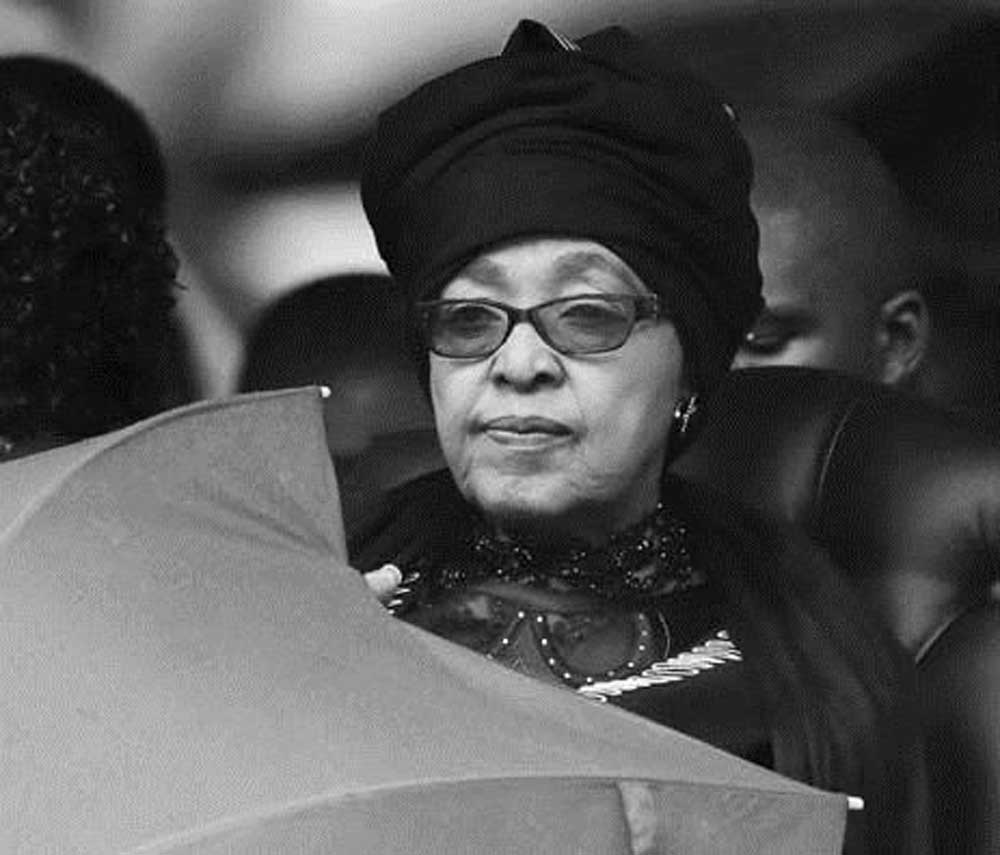Winnie Madikizela-Mandela’s life was marked by struggle
Published 3:10 am Tuesday, April 3, 2018

- WINNIE MADIKIZELA-MANDELA listens to speeches during the memorial service for her ex-husband, former South African president Nelson Mandela at the FNB Stadium in Soweto, Johannesburg, on Dec. 10, 2013.
JOHANNESBURG (AP) — Even the name given to Winnie Madikizela-Mandela at birth — Nomzamo, “one who undergoes trials” — foretold a life of struggle.
During her nearly 38-year marriage to Nelson Mandela, she fought for black majority rule even as she vowed to escape the shadow of the great man.
Trending
And although many South Africans called her the “Mother of the Nation,” she would become engulfed in criminal convictions and scandals.
Madikizela-Mandela died Monday in a Johannesburg hospital at the age of 81 after a long illness, her family announced. She will be honored with a state funeral on April 14, President Cyril Ramaphosa said Monday evening after paying a condolence visit to Madikizela-Mandela’s home in Johannesburg’s Soweto township.
Over the years, Madikizela-Mandela became a symbol of the suffering caused by South Africa’s system of white minority rule known as apartheid and became a force against it, ultimately serving as a member of parliament.
She and her husband began a family before Nelson Mandela went underground and then was imprisoned for more than a quarter-century. Left with two young daughters, Madikizela-Mandela was persecuted by police and banished to a remote town where neighbors were forbidden to speak with her.
As Nelson Mandela emerged from 27 years in prison seeking reconciliation and forgiveness, Winnie Madikizela-Mandela wanted the perpetrators of apartheid punished.
Madikizela-Mandela’s story grabbed the imagination of people around the world.
Trending
The young Winnie grew up in what is now Eastern Cape province and came to Johannesburg as the city’s first black female social worker. Her research into the high infant mortality rate in a black township, which she linked to poverty caused by racism, first sparked her interest in politics.
“I started to realize the abject poverty under which most people were forced to live, the appalling conditions created by the inequalities of the system,” she said.
In 1957, she met Nelson Mandela, a rising lawyer and anti-apartheid activist 18 years her senior, and they married a year later following his divorce from his first wife.
The first five turbulent years of their marriage saw Mandela going underground to build the armed struggle against apartheid, and finally to prison in 1963, while his wife gave birth to two daughters.
Madikizela-Mandela always was aware of the danger of being overshadowed by her husband’s all-encompassing personality, and she vowed not to lose herself.
Even before they were separated by Nelson Mandela’s long stay in prison, she had become politicized, being jailed for two weeks while pregnant for participating in a women’s protest against apartheid restrictions on blacks.
The apartheid police later harassed her, sometimes dragging her from bed at night without giving her a chance to make arrangements for her daughters.
Still harassed by police, Madikizela-Mandela gathered a group of young men known as the Mandela United Football Club, who lived on her property.
But they turned into thugs who so terrorized the black township of Soweto that people set ablaze Madikizela-Mandela’s home there, according to an autobiography by ANC veteran Amina Cachalia and other accounts. In the most infamous case, her bodyguards in 1989 kidnapped four boys including 14-year-old James “Stompie” Seipei Moeketsi.
He was accused of being a police informer, badly beaten and his throat slit. In 1991, Madikizela-Mandela was charged with Moeketsi’s killing. A court found her guilty of his kidnapping and assault and sentenced her to six years in jail.
She appealed and was found guilty of being an accessory in the assault, and the sentence was reduced to a fine and a suspended prison term. Madikizela-Mandela steadfastly denied any knowledge of any killings, leading the judge in that case to brand her “an unblushing liar.”
In 2003, Madikizela-Mandela was convicted on fraud and theft charges and sentenced to five years in jail, though she ended up serving no time.
The conviction appeared to end her career: She quit Parliament and resigned from her posts as president of the ANC Woman’s League and a member of the party’s executive committee.
But her base of support remained loyal.
In 2009, months before general elections, ANC members made her No. 5 on their election list, a measure of her enduring popularity.
She remained outspoken and joined the rising anger against then-President Jacob Zuma over multiple scandals that hurt the reputation of the ANC, calling with other longtime party veterans for his departure. Zuma resigned in February.






